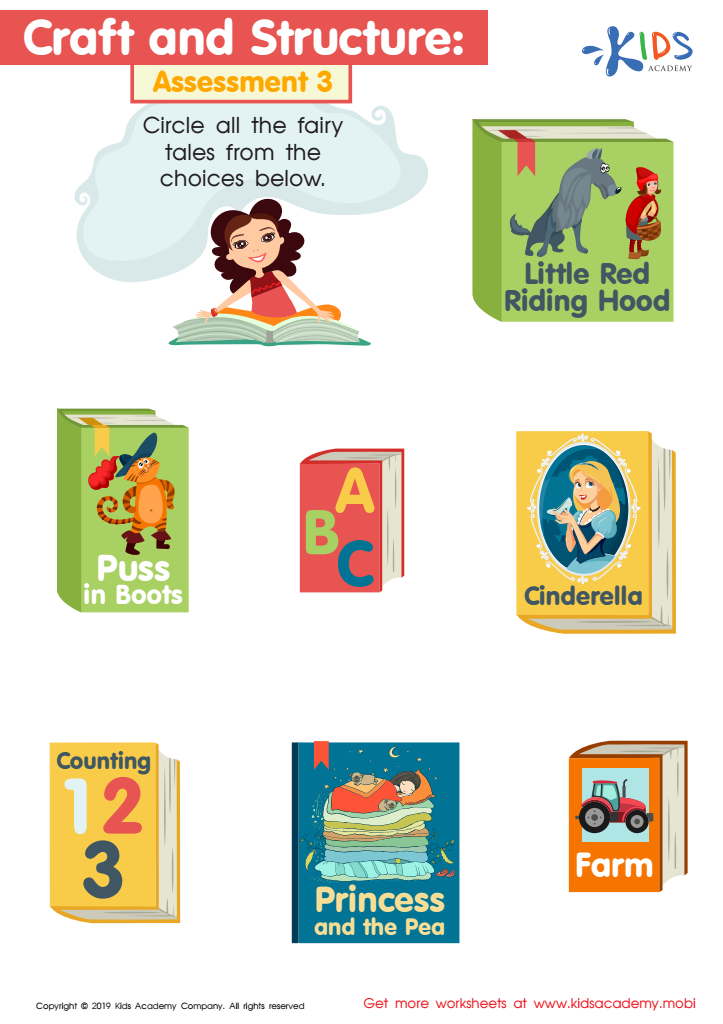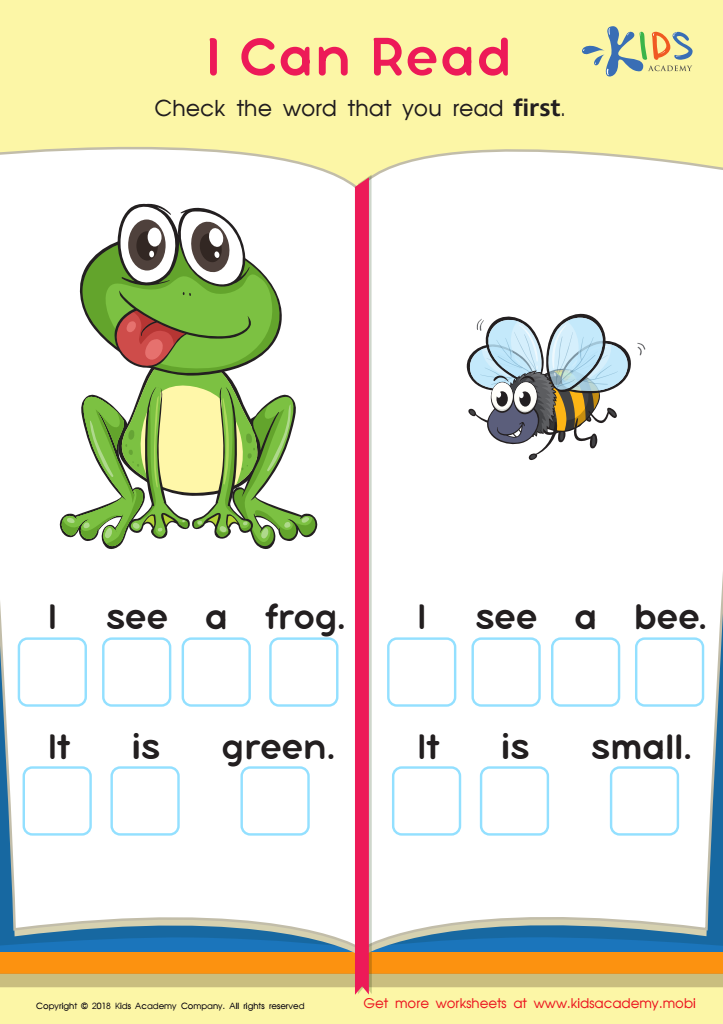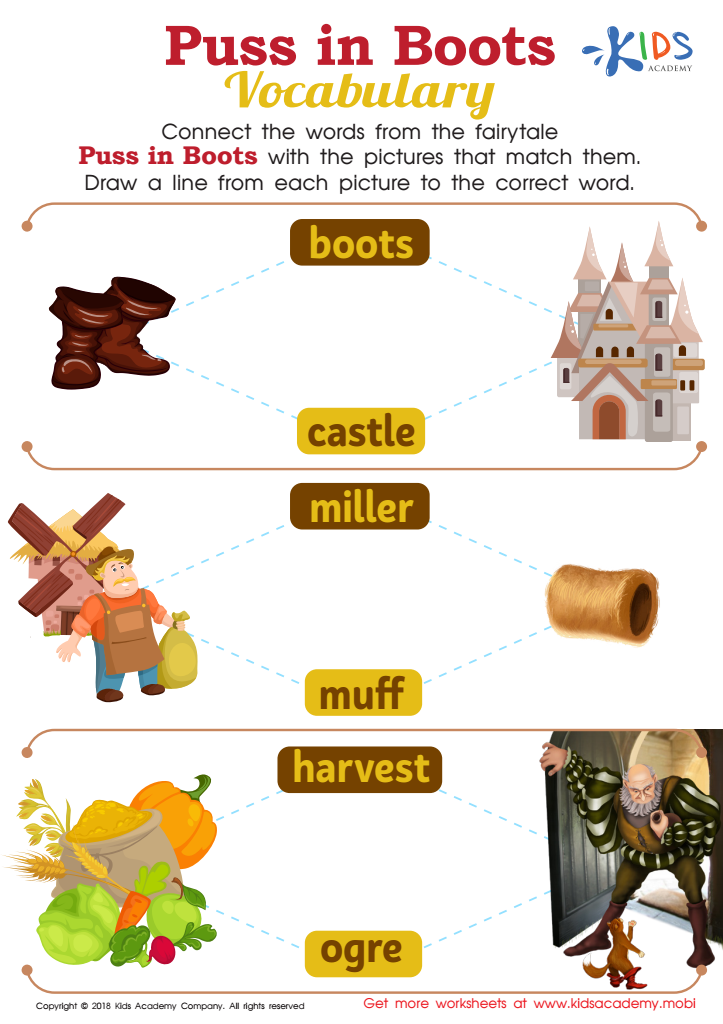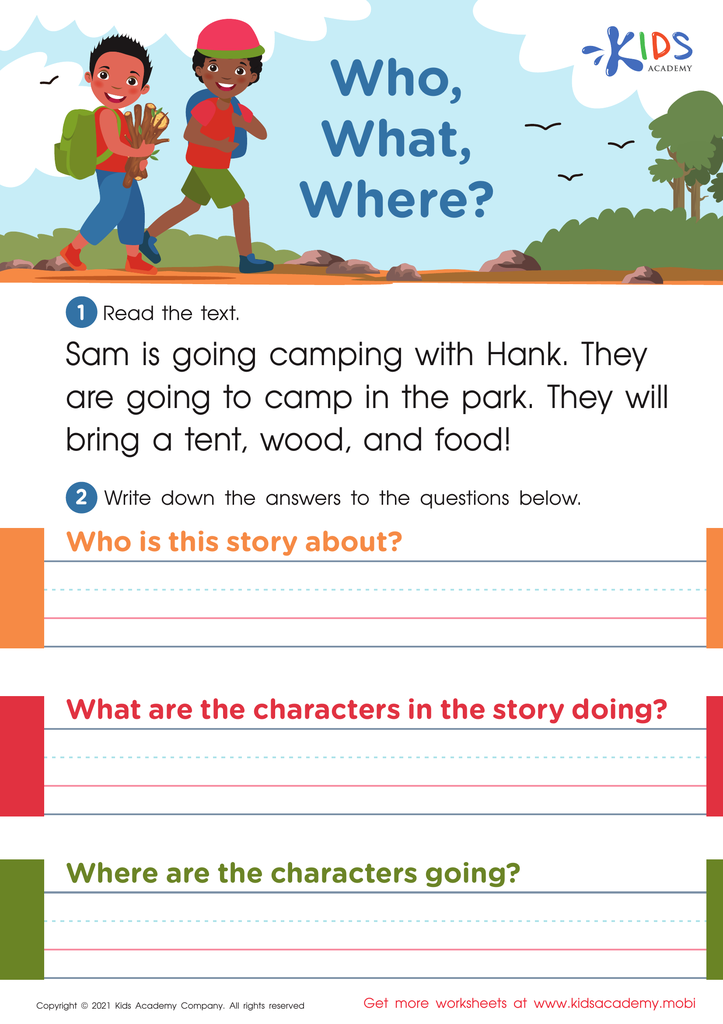Understanding context Reading Fiction Worksheets for Ages 4-6
4 filtered results
-
From - To
Discover exciting "Understanding Context Reading Fiction Worksheets" designed for children aged 4-6. Nurture early reading skills with engaging tasks that promote comprehension through context clues. These printables help young learners grasp plot, characters, and settings, making reading an enjoyable adventure. Perfect for preschool and kindergarten, our worksheets support educators and parents in enhancing kids' literacy development. With colorful illustrations and easy-to-follow prompts, children will have fun while improving their reading abilities. Give your child a head start on their reading journey with our expertly-crafted resources tailored for early learners! Explore now at Kids Academy.


Craft and Structure: Assessment 3 Worksheet


I Can Read Worksheet


Puss in Boots Vocabulary Worksheet


Who, What, Where? Worksheet
Understanding context when reading fiction is crucial for young children aged 4-6 as it lays the foundation for strong literacy and comprehension skills, essential for their academic success and personal development. Fictional stories immerse children in diverse scenarios, characters, and settings, helping them to enhance their vocabulary, grasp new concepts, and develop empathy by understanding different perspectives.
For parents and teachers, facilitating context comprehension means more than just reading words; it involves engaging children in discussions about the story’s environment, the motives behind characters’ actions, and the sequence of events. By doing so, adults help children make connections between what they read and their own experiences or the wider world, which deepens their engagement and fosters critical thinking.
Contextual understanding also aids in vocabulary acquisition as children are introduced to new words within meaningful settings, making it easier to grasp and retain their meanings. Furthermore, stories provide opportunities to discuss complex themes like friendship, kindness, and resilience, teaching valuable life lessons in a digestible format.
Encouraging children to delve into the context of fiction helps build their cognitive abilities, nurtures their curiosity, and enhances their cognitive and imaginative skills, thus preparing them for more complex texts and critical thinking tasks in the future.
 Assign to My Students
Assign to My Students





.jpg)



.jpg)











